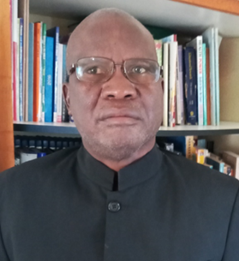Prof Mukala Lilemba
The expression “didactic situation” is a pedagogical activity, which entails the exercise in which the learner, teacher and the subject matter are intertwined to produce the necessary learning and learning process.
Although all three play crucial roles in achieving the desired outcomes and goals of education, research has placed the learner at the centre of teaching and learning.
In Namibian schools, where higher graders are underperforming, there is a need to assess the main cause.
The school consists of learners, teachers parents and other stakeholders who work together to achieve common goals despite individual differences.
The school should always function within a community and try to be relevant to the needs and demands of the people.
The consumers and taxpayers of the Namibian education system should be concerned about the poor performance of the children because of the misuse of the large chunk of money being allocated to the Ministry of Education, Arts and Culture every year from the national budget.
It cannot be business as usual, as the futures of these learners are at stake.
The education system equally cripples the future development of the country, as manpower will be in short supply.
It is equally important to consider the issue of perpetual dependence syndrome on other nations in terms of educational provision.
Whatever the case, Namibia is sitting with an education system, which is failing to redeem itself.
Maybe to get a clear picture of the failure of the education system, it might be better to carefully dissect each of the components of the didactic situation.
The learning component
It is not easy and simple to single out one factor as being responsible for the learners to underperform.
The rural-urban factor could be one of the factors that impact the performance of learners as teachers and learners in remote areas may not have access to resources, which can propel them in learning.
It is a clear case that resources in rural areas are scarce while relatively available in urban areas.
Still, social inequality plays a key role in some societies.
People are unequal in many aspects but the most important ones are education level, occupation, income, power, and prestige.
Conflict theorists maintain that inequality exists because the wealthy and the powerful condone it, as they tend to benefit from such a system and have the power to make systems work in their interest.
The differences in performance in many schools in Namibia could be that resources are not evenly distributed after 32 years of independence.
Not all children have the same chance of going to school and this scenario is known as unequal access to schooling.
In both rural and some impoverished urban areas the situation is aggravated by the lack of resources like teachers, materials, facilities and equipment; lack of motivation from the local environment; language problems and household chores where children are expected to take part.
We can throw in the status and characteristics of a hybrid learner who is heavily bombarded by the mass media, peer pressure, and relaxed in educational endeavours.
If these factors are not taken into consideration, learners may fail to concentrate and in the process fail to make it during the examinations.
The teaching component
For centuries, teaching has been regarded as a noble profession and indeed a calling, but such status has eroded.
It is expected that when a child goes to school he or she goes there to learn and the teacher is expected to teach according to specific scientific insights.
Despite the differences in their roles as teacher and learner, it is a fact that both parties are human and the primary relationship in a school is, therefore, an inter-human one.
The teacher in this case should reflect a certain image of adulthood and in this way, the reality of life is brought into the school.
The teacher as an adult directs the child toward the situation he or she has arrived at.
The concept “educational encounter: is a vital part of education in the school-didactical situation that implies a particular engagement between mankind and reality.
The child, therefore, needs an educative guide (teacher) and a role model.
The subject matter component
For many years in Namibia, the curriculum taught in schools was irrelevant and foreign.
Even immediately after independence, the education system flirted with the Cambridge Education for some years until it was eventually namibianised.
In the main subject areas of primary education, which include language, mathematics, science and social studies, little variation is found among different regions.
Local-level interests may also have an impact on and contribute to the quality of educational content.
Subjects that are offered should benefit society in the long run, as they will not assist society by emphasising theoretical aspects of the subject.
Revolutionising the education system
This requires political and educational will to overhaul the education system.
The education authorities with its advisory services should rigorously implement constant assessment and evaluation of the teaching-learning process.
Although social inequalities cannot be eliminated but could be minimised by uniformly providing basic teaching and learning materials and aids to all schools.
Teacher recruitment should focus on the quality of prospective applicants and only the best to be selected.
The curriculum should be revisited and if need be, overhauled and bring relevant and diversified subjects like the vocational and technical courses.



